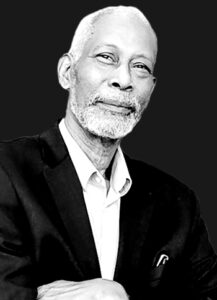Senior diversity consultant, Parker Wright Group, Las Vegas
 Businesses are seeking ways to mitigate racism in the workplace, but are realizing it must be more than words on a page. As a diversity and inclusion consultant, I’ve realized that most people want the same thing, but often use different means to reach their goals. I help them learn empathy for others, and in the long run it allows them to accept and embrace the differences. As a Black American, I’ve had to realize my personal bias was adversely impacting my ability to understand the challenges of others. I had to learn to manage my own bias before I could help others. I think Lafayette gave me my greatest change of perspective. Having grown up in the inner city, my exposures at Lafayette helped me lose some of my misplaced anger. I often painted whites with a broad brush, but my Lafayette experience showed me how to assess the individual.
Businesses are seeking ways to mitigate racism in the workplace, but are realizing it must be more than words on a page. As a diversity and inclusion consultant, I’ve realized that most people want the same thing, but often use different means to reach their goals. I help them learn empathy for others, and in the long run it allows them to accept and embrace the differences. As a Black American, I’ve had to realize my personal bias was adversely impacting my ability to understand the challenges of others. I had to learn to manage my own bias before I could help others. I think Lafayette gave me my greatest change of perspective. Having grown up in the inner city, my exposures at Lafayette helped me lose some of my misplaced anger. I often painted whites with a broad brush, but my Lafayette experience showed me how to assess the individual.
The work I do with community organizations brings me great joy and personal satisfaction. I currently am chairman of the advisory board for the Ethiopian Community Development Council, African Community Center, which is an agency charged with resettling refugees. We have helped more than 400 families transition to life in the United States. I am also active in the Interfaith Council of Southern Nevada, which has allowed me to work with people of all faiths and help them learn our similarities outweigh our differences.
Please describe your current and/or previous roles that relate to your work for justice and equality.
Through my work as a diversity and inclusion consultant, I have worked with many community organizations. I currently am chairman of the advisory board for the Ethiopian Community Development Council [ECDC]-African Community Center, and I am active in the Interfaith Council of Southern Nevada.
What about your work brings you the most joy or gives you the most pride?
ECDC is one of two agencies charged with resettling refugees. We helped over 400 families transition to life in the U.S.
What is your most meaningful moment or significant accomplishment as it relates to your work for justice and equality?
Working with the Interfaith Council has allowed me to work with people of all faiths and help them learn our similarities outweigh our differences
What is the greatest hurdle you’ve had to overcome?
As a Black American, I had to realize my personal bias was adversely impacting my ability to understand the challenges of others. I had to learn to manage my own bias before I could help others.
How do you empower those around you?
Most people want the same thing, but often use different means to reach their goals. I help them learn empathy for others and in the long run it allows them to accept and embrace the differences
Words I live by: “Be the change you wish to see in the world.” —Gandhi
 Businesses are seeking ways to mitigate racism in the workplace, but are realizing it must be more than words on a page. As a diversity and inclusion consultant, I’ve realized that most people want the same thing, but often use different means to reach their goals. I help them learn empathy for others, and in the long run it allows them to accept and embrace the differences. As a Black American, I’ve had to realize my personal bias was adversely impacting my ability to understand the challenges of others. I had to learn to manage my own bias before I could help others. I think Lafayette gave me my greatest change of perspective. Having grown up in the inner city, my exposures at Lafayette helped me lose some of my misplaced anger. I often painted whites with a broad brush, but my Lafayette experience showed me how to assess the individual.
Businesses are seeking ways to mitigate racism in the workplace, but are realizing it must be more than words on a page. As a diversity and inclusion consultant, I’ve realized that most people want the same thing, but often use different means to reach their goals. I help them learn empathy for others, and in the long run it allows them to accept and embrace the differences. As a Black American, I’ve had to realize my personal bias was adversely impacting my ability to understand the challenges of others. I had to learn to manage my own bias before I could help others. I think Lafayette gave me my greatest change of perspective. Having grown up in the inner city, my exposures at Lafayette helped me lose some of my misplaced anger. I often painted whites with a broad brush, but my Lafayette experience showed me how to assess the individual.